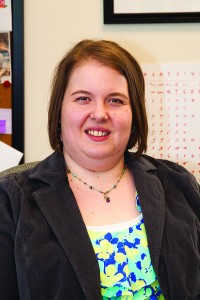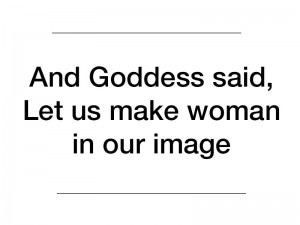I started the slow arduous ascent (or is it a descent?) along the road towards graduate school last May. Why did I begin preparing so early? Well, if you ever score below the tenth percentile mark on the math portion of a practice GRE (graduate record exam), then you’ll experience a similar sense of urgent compulsion to spend the summer studying, studying, studying.
 So, after countless summer hours passed in the demanding company of my “Kaplan prep” practice book, I returned to Houghton to take the horrible GRE and start my applications proper. Round about October I compiled information for specific, potential schools. I honed writing samples and personal statements, and I solicited recommendations from faculty. I paid an arm and several legs for fees that rained like fire from the sky. I ran around campus tying up loose ends—transcripts, resumes, etc. Then, by December, I submitted my completed applications. As some of you surely know, all this stuff is hard work, and the satisfaction of clicking the send button on all those stupid electronic documents is wonderful.
So, after countless summer hours passed in the demanding company of my “Kaplan prep” practice book, I returned to Houghton to take the horrible GRE and start my applications proper. Round about October I compiled information for specific, potential schools. I honed writing samples and personal statements, and I solicited recommendations from faculty. I paid an arm and several legs for fees that rained like fire from the sky. I ran around campus tying up loose ends—transcripts, resumes, etc. Then, by December, I submitted my completed applications. As some of you surely know, all this stuff is hard work, and the satisfaction of clicking the send button on all those stupid electronic documents is wonderful.
What I’ve so far narrated is the external process of putting my name in the daunting and immense hat that is the current pool of graduate school applicants. Now I want to recall the more internal but no less excruciating process of deciding whether or not it was a good idea to apply in the first place.
I should start by emphasizing that I’m a humanities major who has applied to English programs in hopes of someday teaching in a college setting. So there’s the first and biggest problem. The job market for English positions at post-secondary institutions is abysmal. We’ve all heard the woes of education inflation; there’s no denying that academic degrees mean less now than they ever have before, and as an aspiring English “scholar,” these dire conditions hit especially close to home. The message that most of the world sent me was “don’t go.”
Due to the above-mentioned circumstances, my decision to apply was hard earned at the price of months of fraught consideration. Though, in retrospect, I think the inner turmoil was necessary. It was only after wrestling with all the reasons not to apply that I came to realize that those reasons had nothing to do with my desire to pursue study and employment in the field I love. Liberal arts (and Houghton specifically) played an essential role in this realization. I’ll do my best to explain, but because chapel this semester is focusing on “vocation,” I think I’ll frame the remainder of my explanation in similar language.
Do we come to Houghton to get a job? Are we here to take the first steps up a salary ladder? Are we here for a glorious and future retirement? My hope is that the answer to these questions is a repeating “no.” Though these concerns are important, they are not most important. Though they should be considered in our decisions, they should not dictate our decisions. I know we’ve all heard the tired catchphrases about the strengths of a liberal arts education, but I want to earnestly reiterate the belief that a place like Houghton is more about what you make of yourself than it is about what you can make in a paycheck. Though this truth may not be apparent always (what with the bombarding bad news about the economy, job market, and doom-ridden future), it is crucial to remember the value of years of hard work alongside committed peers and mentors in a deliberate and mindful community.
Now I’m going to step off my soapbox to briefly return to my personal journey. In the face of what felt like cosmic naysaying, key people at Houghton encouraged me to commit to what I care about. This support was essential because it came from caring people who appreciate the satisfaction of investing in liberal arts. They know me, and they also know the rich complexity of enmeshing oneself in a challenging, thoughtful and holistic life.
Even if I don’t get accepted this year (which is looking like a real possibility at this point, especially as I’ve just now received a rejection letter), I’m confident that I will someday leave a graduate school with a terminal degree in English. At that point, I may not immediately find a teaching position. At that point, I may be one of thousands of equally educated peers drifting from one job listing to another. I may be no further along in being sure about my future. But at that point I will not regret my earlier decision to use my gifts, abilities, and resources to commit things that put joy in my life.
It’s probable that I’m over-simplifying by spewing platitudes that you’ve all heard before. It’s also probable that I’m naïve, that what I’m saying doesn’t apply in the least to you. Obviously, it’s also true that a place like Houghton isn’t the only route for you or me to attain a worthwhile future. But is it also possible that Houghton does actually provide what we need to flourish out in “the real world”?






